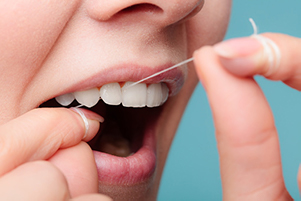The Effects of Tooth Loss
Washington, DC
 Tooth loss can be a distressing experience, not only for its immediate physical impact but also for its long-term consequences on one's oral health and overall well-being. Losing one or more teeth can affect your bite, jaw alignment, digestion, and nutrition, leading to complications that may impact your quality of life. Moreover, tooth loss can have psychological and social effects, such as reduced self-esteem and social isolation. At Capital Dental Center we provide dental implant materials, the best solution to tooth loss. Tooth loss can be a distressing experience, not only for its immediate physical impact but also for its long-term consequences on one's oral health and overall well-being. Losing one or more teeth can affect your bite, jaw alignment, digestion, and nutrition, leading to complications that may impact your quality of life. Moreover, tooth loss can have psychological and social effects, such as reduced self-esteem and social isolation. At Capital Dental Center we provide dental implant materials, the best solution to tooth loss.
The Relationship Between Tooth Loss and Oral Health
Tooth loss can have a significant impact on your oral health. When a tooth is lost, the bone that supports it begins to deteriorate, affecting the surrounding teeth and leading to further tooth loss. Moreover, shifting teeth after tooth loss can make it difficult to clean the remaining teeth properly, leading to plaque buildup and gum disease.
Gum disease is a common consequence of tooth loss, as the bone loss that occurs with tooth loss creates pockets between the teeth and gums where bacteria can accumulate. This can lead to inflammation and infection, further damaging the mouth's bone and soft tissues. Therefore, maintaining good oral hygiene habits and seeking timely treatment for tooth loss is essential to prevent further damage to your oral health.
How Tooth Loss Affects Your Bite and Jaw Alignment
Tooth loss can also affect your bite and jaw alignment. The loss of even a single tooth can cause the remaining teeth to shift and drift, affecting your bite and making it difficult to chew and speak properly. When several teeth are lost, it can change the shape of your face and jaw alignment. Moreover, tooth loss can lead to the overloading of certain teeth, which can cause them to wear down or fracture over time. This can result in additional tooth loss and the need for further restorative dental work. Therefore, addressing tooth loss immediately is crucial in maintaining proper bite and jaw alignment.
The Impact of Tooth Loss on Digestion and Nutrition
Tooth loss can also impact your digestion and nutrition. Chewing is the first step in the digestive process, and without adequate teeth, it can be difficult to chew food properly. This can lead to digestive issues such as acid reflux, bloating, and constipation. Furthermore, the inability to chew food properly can lead to poor nutrition, as the body may have difficulty extracting nutrients from poorly chewed food. This can result in malnutrition and other health complications. Therefore, restoring missing teeth is important in maintaining proper nutrition and digestive health.
Restorative Options for Treating Tooth Loss
Fortunately, there are several therapeutic options available for treating tooth loss. Dental implant placement, bridges, and dentures are all viable options for replacing missing teeth and restoring oral health and well-being. Dental implants are popular because they provide a permanent, natural-looking solution for replacing missing teeth. Bridges and dentures are also effective options for restoring missing teeth and improving your bite and jaw alignment. Your dentist can work with you to determine the best restorative option for your needs and health concerns. Regular dental checkups and cleanings can also help to prevent tooth loss and maintain optimal oral health.
Schedule a Consultation with Us Today
To schedule an appointment with us at Capital Dental Center for your dental implants for tooth loss, please call us at 202-978-8778 today. |